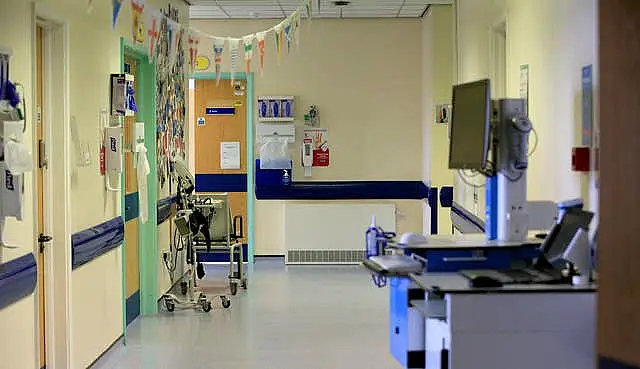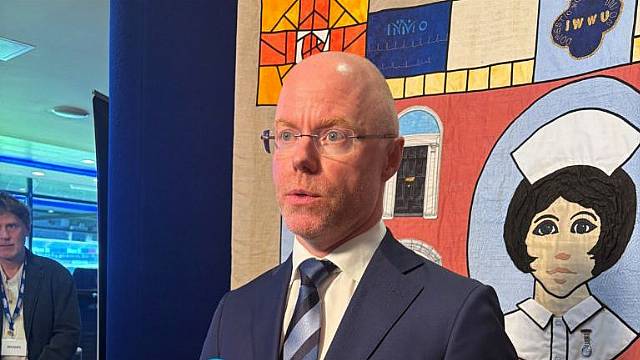Minister for Health Stephen Donnelly has said he wants to see a “resolution” to the HSE recruitment freeze.
Mr Donnelly said the recruitment embargo is having an impact on clinical teams and nursing teams being able to do their job.
The Fianna Fáil minister is having ongoing conversations with Cabinet colleagues about the issue and how to plug the funding gap.
More than 2,000 posts filled or committed to by the HSE last year have no Government-backed funding.
Mr Donnelly attended the final day of the Irish Nurses and Midwives Organisation (INMO) annual conference, held at Croke Park in north Dublin on Friday.

He told those gathered that he is working with other ministers to resolve the issue.
“That is an ongoing conversation that I’m having with Government colleagues. It’s being discussed,” he said.
“What I want to see is a resolution to this very quickly. I’m acutely aware that the hiring embargo, whilst it was necessary because of thousands of staff that were hired for whom there was no funding to hire, unfortunately it was necessary.
“It is impacting on our clinical teams and nursing teams to be able to do the full job that they want to do.
“I want to see a resolution to this as quickly as possible, but what Government has to do is consider that there was a record amount of funding provided for hiring new staff.”
He said funding was provided to hire 6,000 new workers but the HSE hired 8,000 staff. Mr Donnelly said the Government is still working on resolving the issue.
It was announced on Thursday that the Health Information and Quality Authority (Hiqa) will carry out a review of emergency care in the Mid West region to determine if a second emergency department is needed.
It will consider whether there is a need for a second emergency department to support University Hospital Limerick (UHL), which is heavily impacted by overcrowding.
Mr Donnelly said that despite reductions in the number of patients on trolleys in other hospitals, Limerick saw a “big increase”.
“It’s because of that increase over the last number of months that I have now kicked off a review of urgent and emergency care in the Mid West region, uniquely of all other regions that only has one emergency department,” he said.
“There has been more investment in Limerick hospital than any other hospital in the country in recent years.
“They’ve had a huge increase in the budget, very importantly, they’ve had more than a 40 per cent increase in the workforce, so about 1,200 more people working in UHL, they have an extra 108 beds already in place. I have committed to 86 more for this year, and then we’ve nearly 200 beds being built on site.
“Unfortunately, while other hospitals have managed to use investment to reduce the trolley numbers, it’s going the wrong way in Limerick.
“There are more reforms required.”
He said there needs to be a “step change” in investment capacity and reform.
“What we need to see is ongoing clinical leadership in the hospital and administrative leadership in the hospital, so the reforms in the ways of working that we know are having an impact in Waterford, in Portlaoise, in Tullamore and in other hospitals, that they become standard practice in UHL,” he added.
“I fully believe that if UHL can implement the kind of changes that the other hospitals have, we will see a very significant easing of the pressure on patients in the emergency department.”







